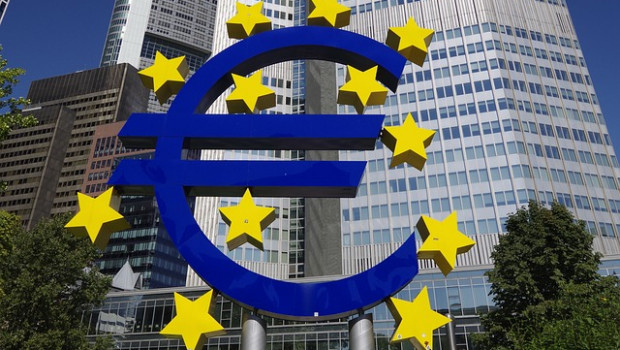Europe midday: Shares slip into red on poor eurozone data

European stocks slipped into the red at lunchtime after eurozone manufacturing data showed growth fell to an 18-month low in May, with orders down for the first time in nearly two years amid inflationary pressures.
The benchmark Stoxx Europe 600 index was down 0.35%. Germany’s DAX outperformed with a 0.28% rise and France’s CAC 40 was flat.
S&P Global's eurozone manufacturing purchasing managers’ index declined to 54.6 from 55.5 in April. A reading above 50.0 indicates expansion while a reading below signals contraction.
New orders fell for the first time since June 2020 amid an ongoing supply crunch and prices pressures, with producers of many goods and raw materials lifting their prices again as energy prices surged.
The survey also found that business confidence was among the lowest seen over the past two years amid sustained concerns surrounding the outlook for prices, supply chains and demand.
Market participants were also keeping an eye on volatile oil prices. Susannah Streeter, senior investment and markets analyst at Hargreaves Lansdown, said: "On commodity markets, the oil price has caught another rollercoaster ride, dipping sharply after a rapid climb upwards as expectations of supply in the market fluctuate."
"Just a day after surging to above $123 Brent crude following the EU’s compromise deal to block more than two thirds of Russian oil imports, the benchmark has careered downwards to hit $115 dollars a barrel, falling 5.6%."
Streeter added that the slide comes amid speculation that OPEC could eject Russia temporarily, potentially setting the scene for other big producers to pump more oil.
"While there is no official policy yet laid out, the price rise is a reaction to reports that some members are looking to ramp up production and could use more of their spare capacity if Russia falls out of the agreed quotas being set. However, higher oil prices have boosted Gulf economies, with Saudi Arabia’s GDP surging by 9.6% in the first quarter, so there is likely to still be reticence about turning on the taps too freely."
Earlier, figures from Destatis showed that German retail sales fell more than expected in April amid higher prices. Retail sales fell 5.4% on the month versus expectations for no change.
In equity markets, DWS slid as the German asset manager’s chief executive resigned just hours after police raided its offices in connection with a probe into allegations over greenwashing.
Iconic bootmaker Dr Martens shares rocketed by a quarter after it posted a surge in annual pre-tax profits, driven by a "very strong performance" in the Americas and Europe, the Middle East and Africa.
Writing by Michele Maatouk.